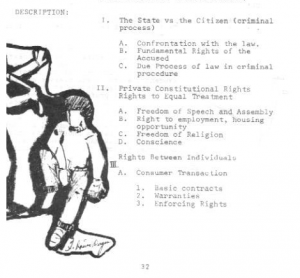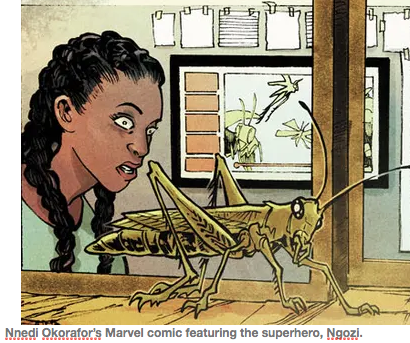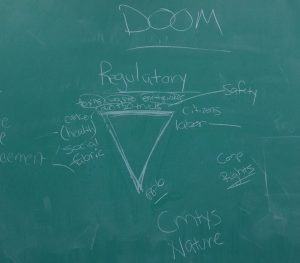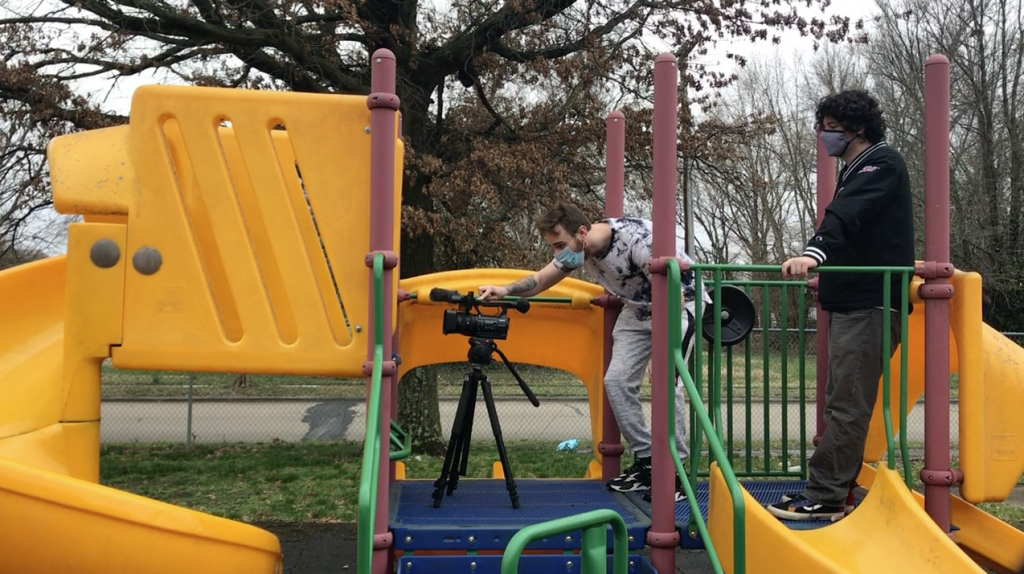How shall we learn, how do we learn.

Learning by observing, learning through real activities that matter and have consequences.
Banner images: Nils Norman’s class at U Chicago, and my class, The Everyday, at U Chicago.
carbonfarm.us/learn has an archive of projects I have found inspiring.
Science Fiction in a minor key. Fall 2017

Feminist science fiction, speculative fiction and Afrofuturism. Speculative fiction is premised on creating new worlds where the ground rules are changed. We look for and create works that dilate upon subjugation and power differentials in our society, from reproductive technologies, social reproduction and labor, law and punishment, social/legal recognition and constructs of race and personhood, ethnicity and difference. The class limits its scope to the speculative fiction emergent from feminist, antiracist, antifascist, and post-colonial movements, and to work driven by indigenous and afro-centrist philosophies. MCMA 555-02. Syllabus
Storytelling in the Anthropocene. Fall 2016

The impacts of climate change are reframing public awareness of environment and place. What kinds of stories cut the fog of contradiction that is our ideological atmosphere? We will read across disciplines, play with method and meet artists and scientists in a search for eco-literate stories that foster new forms of attention. // Grad/Und // 2018- honors curriculum. Syllabus
Activist Media Art Production. Spring 2012
 Occupy the Media. This class used media making (using video, radio, sound and other means) as a creative and tactical tool for expressing political subjectivity. We focused on creating media-based projects that actively resist, or radically reframe, redefine and reclaim spaces and language to nurture democracy and foster justice. We will build radios, get out of the classroom and do interesting projects.
Occupy the Media. This class used media making (using video, radio, sound and other means) as a creative and tactical tool for expressing political subjectivity. We focused on creating media-based projects that actively resist, or radically reframe, redefine and reclaim spaces and language to nurture democracy and foster justice. We will build radios, get out of the classroom and do interesting projects.
Course is hands-on. Students learned about contemporary projects, and individually and collaboratively created new ones that respond to the issues they care about. This could include student loans, gender discrimination, economic exclusion and rights, democratic process, prisons, systematic violence, while using strategies that include mapping, independent radio and publishing, performance, generative structures, installation/spatiality, open-source cultures, story creation and humor.
RTD 365A producing in the field. Spring 2021
